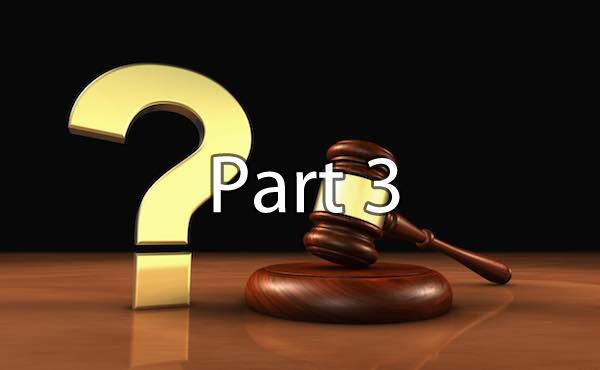
I recently summarized what the process of probate is and when it is required here in Alabama.
This week I wanted to delve a little deeper into the process and discuss duties and a timeline of events.
Last week I wrote Part Two, which detailed PROBATE, IF THERE IS A WILL.
This week I will dig deeper into Part Three, PROBATE, IF THERE IS NO WILL.
When a person dies without a Will
You really don’t want this outcome, trust me!
Dying without a Will is called “intestacy” and the probate process that manages the administration of the estate is called “intestate probate”. Not interstate, intestate. It simply means that the person died without a valid Will in place.
If the deceased left assets behind that don’t have named beneficiaries or joint or co-owners, there is a high likelihood that the family will be forced to go through intestate probate in order for those assets to pass to them.
For example, Momma owns her home and dies without a Will. The children are her next-of-kin and would therefore be high on the list to get the home but they have to open her estate and endure the probate process before it will be deeded to them out of the estate. You can make the mistake that many people make and simply tell the Tax Assessor that you will be paying taxes on it but that will not make the house your house. Probate makes the house your house.
Even when you die without a Will, the State of Alabama (and presumably, every state) has a “will” of sorts already written into the law. Depending on whether you left a spouse or children, your assets will ultimately be divided according to state law between your next-of-kin. The Probate Court will appoint someone as the Administrator of the estate, and this person’s job is to follow Alabama law to the letter and manage the process from beginning until the end, which will take a year or more in many courts. This person will have an attorney on retainer who will file the necessary court documents, attend hearings and instruct the Administrator as to their duties. It will cost the estate thousands of dollars.
The Administrator is often a family member who has a stake in the outcome of the case. In Alabama, the Administrator must be an Alabama resident in order to even ask the Court to be appointed. The person seeking to be appointed must also post a bond, a performance bond of sorts, that assures the Court that the person will fulfill their obligations and not steal from the estate. The bond is a credit decision made by a bonding company so if the person has poor credit, they will often not be able to be bonded at all! If this happens, the Court may have to appoint the County Administrator to the role. While this may save you some time and legal fees, it generally adds a substantial amount of expense to the process. This can be avoided with a properly drafted Will by the way.
When a person has died without a Will and leaves no children, their next-of-kin become more distant relatives. One of the big expenses of administration is finding these relatives and identifying what their exact relationship was with the deceased. This involves certified mail, affidavits, hearings and substantial legal expenses just to identify heirs. This can be avoided with a properly drafted Will by the way.
There is much more to the process than this; I have summarized the process and minimized some of the details the attorney will be working on in the background, but in general this is a sample of how Administration might take shape. If you remember only one thing from these articles it should be this: Not having a Will is the most expensive decision you can make for your family!
We handle a good bit of probate so if you need help in this process, please give us a call.
William G. Nolan
Nolan Elder Law LLC
1232 Blue Ridge Blvd.
Hoover, AL 35226
205/390-0101
www.ElderLawAlabama.com
